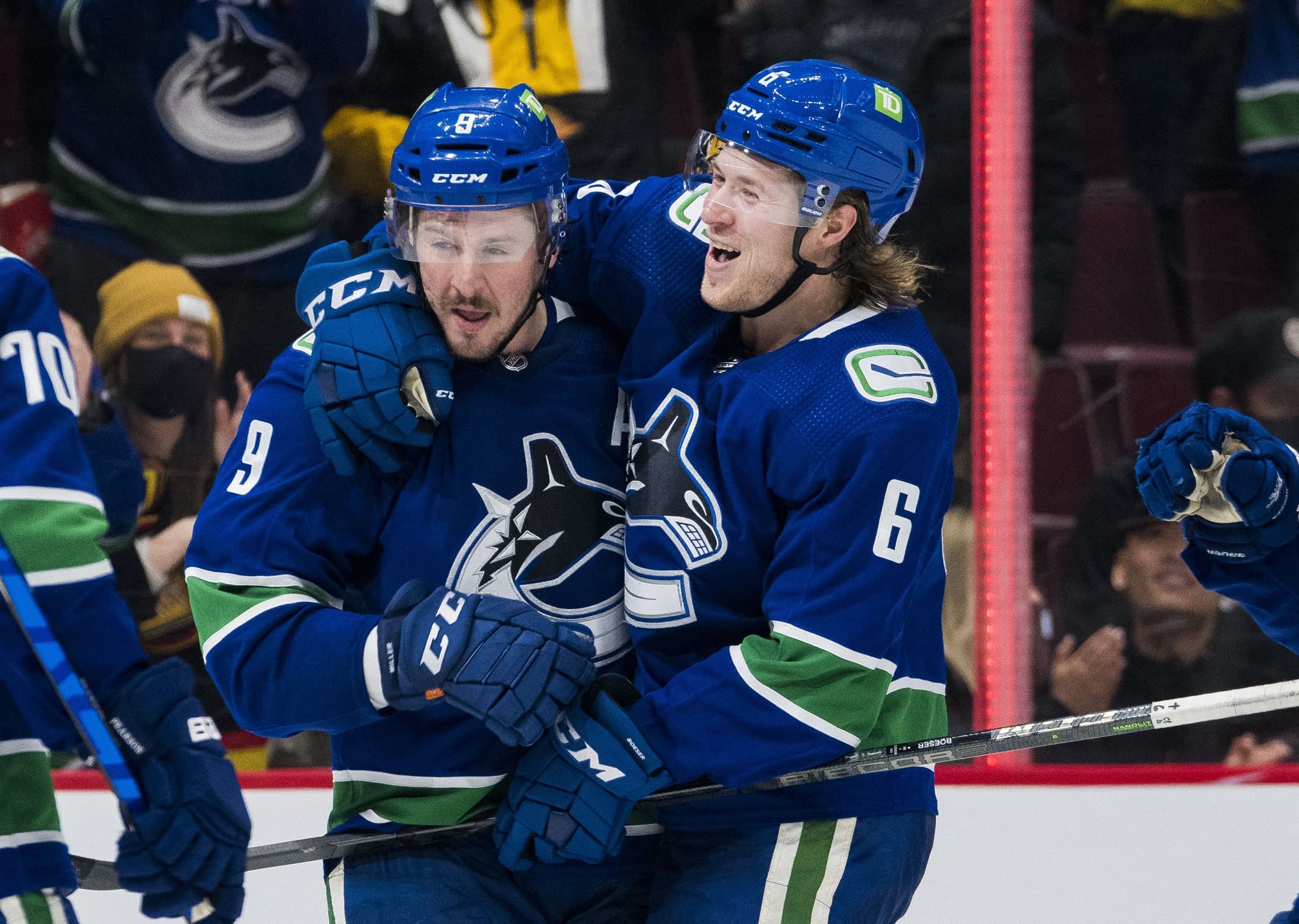Nation Sites
The Nation Network
CanucksArmy has no direct affiliation to the Vancouver Canucks, Canucks Sports & Entertainment, NHL, or NHLPA
Frank Seravalli talks Boeser’s next contract, Miller’s return, and more: Canucks Conversation

Photo credit: © Bob Frid-USA TODAY Sports
Dec 14, 2024, 09:00 ESTUpdated: Dec 14, 2024, 15:12 EST
On Friday’s episode of Canucks Conversation, David Quadrelli and Harman Dayal were joined by NHL insider Frank Seravalli to explore J.T. Miller’s return to the Canucks lineup, Brock Boeser’s potential next contract, and the broader decisions facing the Canucks as they approach the trade deadline.
J.T. Miller’s brief leave of absence created speculation about internal issues within the team. His return has been pivotal for the Canucks, who continue to navigate an up-and-down season with key injuries and roster adjustments.
“There’s been so much innuendo about how they arrived at this point, what it means, the ‘why’ of it all,” said Frank. “J.T. Miller, who is the heartbeat of the team, can run hot at times, but everyone I talked to said there were no incidents out of character that led to this. Frustration and burnout were legitimate factors. Getting him back last night and closer to the real build of what Allvin and Rutherford tried to put together is important for a team that has been up and down but is in a healthy place now.”
Brock Boeser has been one of Vancouver’s most consistent offensive producers this season, but his upcoming free agency raises questions about how the Canucks should handle his next contract.
“He makes 6.65 now, so getting to 8 is really not a significant raise,” said Frank. “He got to that point based on past production—averaging somewhere between 26-29 goals over 82 games. Now he’s on pace for around 30 goals this season, which is above his career average and enough to get you paid. We’re also entering a new phase with the salary cap increasing, so the 6.65 just translates over into 8. The bigger question is term. For a player that plays the way Boeser does, is he going to slow down? Is he a guy you have to worry about in year five, six, or seven of the deal? I’m not saying he will, but that’s how you have to look at it.”
“The Canucks are caught in a position where the best window they have to win is this current timeline with Hughes’ remaining three years at under eight million,” added Harm. “You can say you don’t want to sign a long-term deal for Boeser, but the question becomes how do you replace Brock Boeser? They don’t have a Boeser replacement internally, Lekkerimaki isn’t going to be the immediate answer, and it’s not easy to find 30-goal-scorers in free agency or the trade market. Two things are true here: the contract he’ll be able to fetch probably won’t age well long-term, but he’s also too irreplaceable for this team given their window. They’ll have to concede and sign a deal to keep him.”
The Canucks’ management has hinted at the importance of resolving Boeser’s future before the trade deadline.
“If this is another window for them to win, why would Boeser be any different than allowing Lindholm or Zadorov to walk?” said Frank. “If you’re going to acquire guys to use them for one playoff run and then have them walk, why would you need to bring in something for Boeser to make their team worse when they lose Boeser anyway? NHL teams get twisted on fulfilling a contract and at the end, shaking and walking. That’s the whole point of the deal. The team bought and used all the best years that Brock Boeser is going to have; they bought his prime, paid for it, and can shake hands now and say, ‘Congratulations, you’re off to the next destination.’ I’m not saying that’s what should happen, but it’s okay if it does.”
Frank noted the importance of reallocating cap space in the event of Boeser’s departure. “We can’t forget about the opportunity cost of plugging eight million into one player when it could be spent elsewhere. There’s an ability to go out and replace that people forget about because they’re scared of losing.”
You can watch the full segment below:
Sponsored by bet365
Breaking News
- Scenes from practice: Boeser in non-contact jersey as Canucks skate at UBC
- CanucksArmy’s complete midseason ranking of the Canucks’ top 15 prospects
- Dreger: An Evander Kane trade this week plausible ‘if not likely’
- 5 reasons to keep watching the 2025-26 Canucks: Wagner’s Weekly
- Did Jonathan Lekkerimäki’s 2025-26 season move him closer to or further from being a full-time Canuck?
